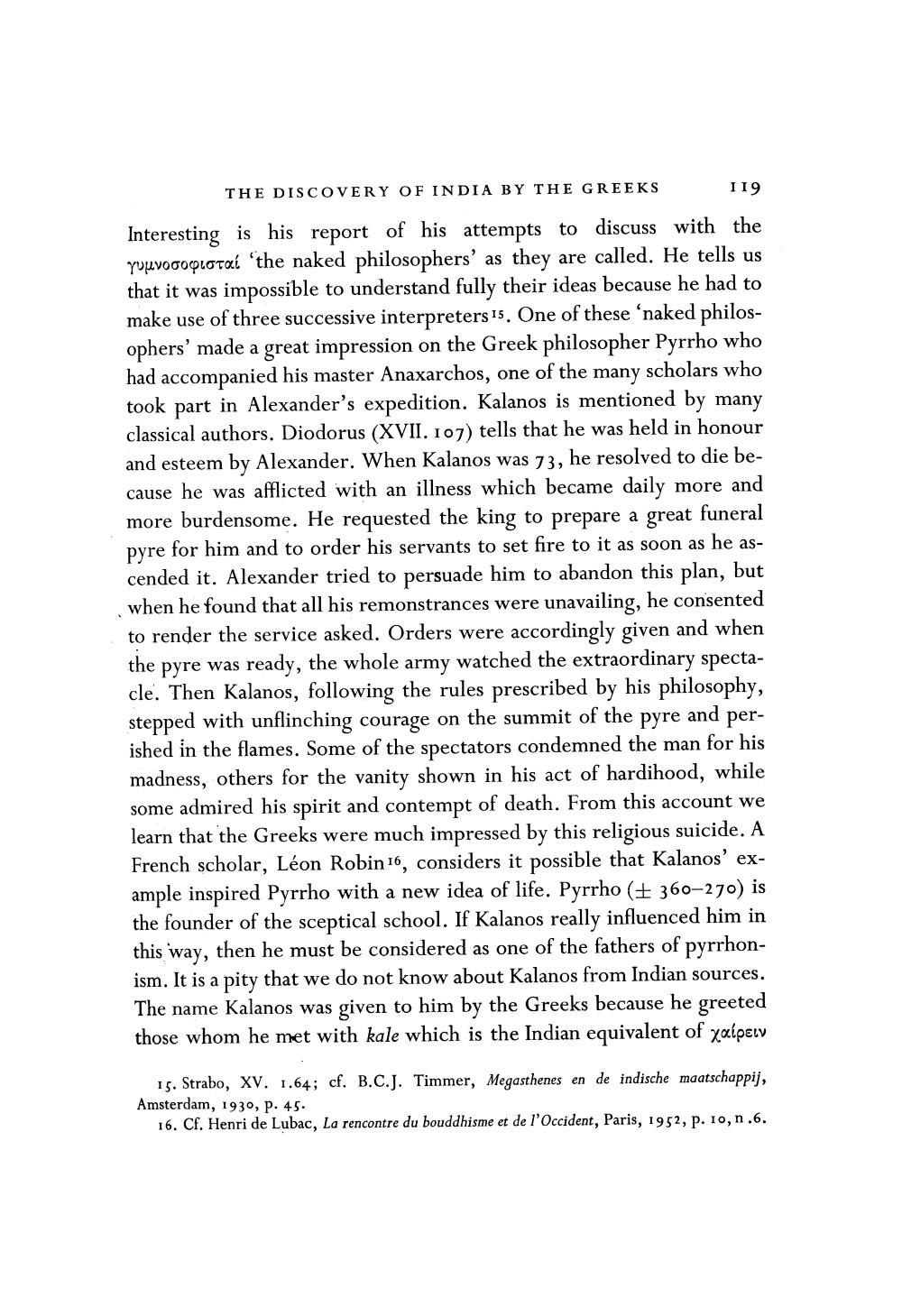Book Title: Discovery Of India By Greeks Author(s): J W De Jong Publisher: J W De Jong View full book textPage 5
________________ THE DISCOVERY OF INDIA BY THE GREEKS 119 Interesting is his report of his attempts to discuss with the YouVoooqlotaí 'the naked philosophers' as they are called. He tells us that it was impossible to understand fully their ideas because he had to make use of three successive interpreters 15. One of these ‘naked philosophers' made a great impression on the Greek philosopher Pyrrho who had accompanied his master Anaxarchos, one of the many scholars who took part in Alexander's expedition. Kalanos is mentioned by many classical authors. Diodorus (XVII. 107) tells that he was held in honour and esteem by Alexander. When Kalanos was 73, he resolved to die because he was afflicted with an illness which became daily more and more burdensome. He requested the king to prepare a great funeral pyre for him and to order his servants to set fire to it as soon as he ascended it. Alexander tried to persuade him to abandon this plan, but when he found that all his remonstrances were unavailing, he consented to render the service asked. Orders were accordingly given and when the pyre was ready, the whole army watched the extraordinary spectacle. Then Kalanos, following the rules prescribed by his philosophy, stepped with unflinching courage on the summit of the pyre and perished in the flames. Some of the spectators condemned the man for his madness, others for the vanity shown in his act of hardihood, while some admired his spirit and contempt of death. From this account we learn that the Greeks were much impressed by this religious suicide. A French scholar, Léon Robin 16, considers it possible that Kalanos' example inspired Pyrrho with a new idea of life. Pyrrho ( 360-270) is the founder of the sceptical school. If Kalanos really influenced him in this way, then he must be considered as one of the fathers of pyrrhonism. It is a pity that we do not know about Kalanos from Indian sources. The name Kalanos was given to him by the Greeks because he greeted those whom he met with kale which is the Indian equivalent of yaipetv 15. Strabo, XV. 1.64; cf. B.C.J. Timmer, Megasthenes en de indische maatschappij, Amsterdam, 1930, p. 45. 16. Cf. Henri de Lubac, La rencontre du bouddhisme et de l'Occident, Paris, 1952, p. 10, n.6.Page Navigation
1 ... 3 4 5 6 7 8 9 10 11 12 13 14 15 16 17 18 19 20 21 22 23 24 25 26 27 28
